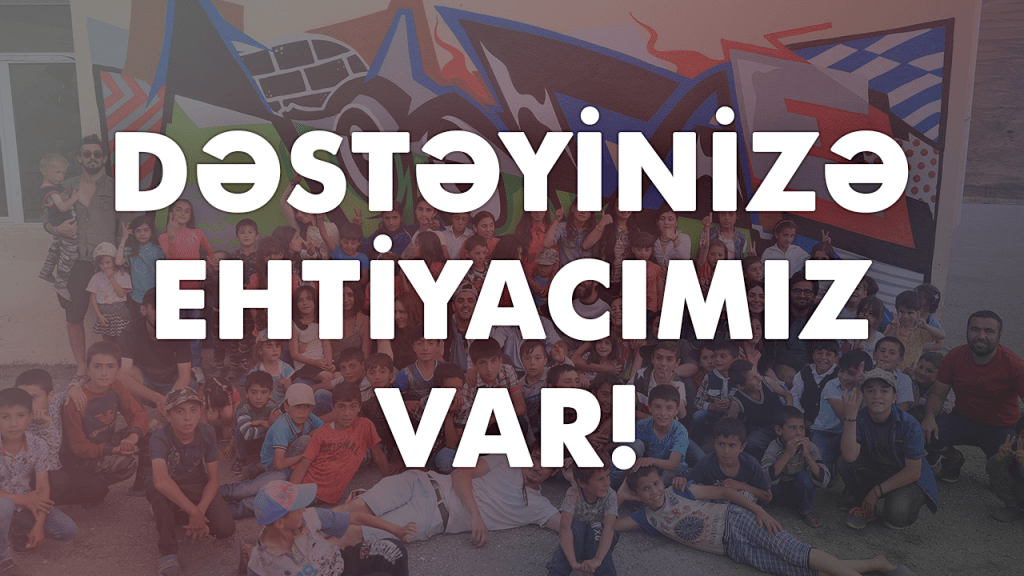Why do we need decolonization?

To grasp the necessity of “decolonization” it’s important to first explain the term itself. To be honest, I used to glance at this term carelessly. I mostly thought that the process, mainly occurring on the African continent, had no relevance to Azerbaijan. However, as I read more, I realized that this phenomenon is global but occurs differently in each region.
Decolonization isn’t merely a political process aimed at granting independence to once-colonised countries. Breaking free from colonialism is a comprehensive approach that requires deep contemplation and rejection of systemic biases developed from a long history of colonialism and power dynamics. Therefore, the question isn’t whether we need decolonialism; the real question is why we need it now more than ever before.
Below, I’ve listed some reasons:
We must compensate for the damages of the past
As a phenomenon, colonialism was built upon the belief that colonizers were superior to indigenous peoples. This belief often led to the systematic destruction or suppression of local cultures, languages, traditions, and knowledge systems. Decolonization is about reconstructing and revitalizing the aspects of indigenous cultures that were lost or overshadowed in this context. This process takes the inherent value and wisdom within these traditions, bringing them back onto the global stage, thus creating a richer, more diverse cultural landscape.
Colonization is fundamentally characterized by three types: trading colonies (Hudson Bay Company, East India Company, ancient Greek colonies), settlement colonies (USA, South American countries, Hawaii, etc.), and exploitative colonies (Caucasus, India, etc.). In these types of colonies, the prestige of the colonizers’ languages varied. In trading colonies, colonizers had to learn the languages of the indigenous peoples, but in settlement colonies, the situation was reversed; for example, native Hawaiians had to learn English. In exploitative colonies, occupying powers taught their languages to local elites, using them as a tool to control marginalized groups.
Where does Azerbaijan fit into this picture? In countries rich in resources like India and Azerbaijan, the fact that the main representatives of the Russian-speaking or English-speaking segment are still descendants of the elite and upper castes is not coincidental. Later, more information will be provided about this.
We must eliminate systemic injustices
Colonial structures, though not always overt today, have deep roots in our social systems and contribute to racial, ethnic, and economic inequalities. They become apparent in education curricula that disregard the histories and contributions of colonized peoples, language hierarchies that prioritize certain languages over others, economic systems that perpetuate dependency, and political structures that marginalize specific groups.
The goal of decolonization is to uncover and eliminate these systemic injustices, aiming to replace them with fairer and more inclusive structures.
One of the most striking examples of colonial injustices is India. When the Indian subcontinent was colonized by Austria, Denmark, the Netherlands, France, Portugal, and finally Britain at various times, the colonizers reinforced the caste system in the country and spread it across the subcontinent. On the contrary, in the name of “modernization,” colonial powers deepened exploitation by utilizing the administrative skills and influence of the upper classes. Therefore, the ethnic Indian CEOs of many well-known companies around the world are not individuals who lived and studied in challenging conditions like the “Slumdog Millionaires” but are actually privileged members of the upper castes who have access to English education.
A similar process took place in Azerbaijan, and this systemic injustice continued in our society. However, in Azerbaijan, it emerged not in English but in Russian. Russian was imposed as an “elite language” during the 200 years of colonialism and was adopted by the ruling class – khans and beys – of the former khanates. This tendency was mainly observed among the settled ruling class (as the nomadic aristocracy didn’t need it much). As a result of this centuries-long continuous influence, the Russian language still maintains its importance as a cultural language in our society, whether in restaurants, workplaces, government offices, or even cinemas. Art exhibitions, music concerts, discussions of political news… Is the Russian language really so inevitable?!
The process of decolonization also promotes mutual respect and understanding among different cultures. Educating people about the histories, cultures, and contributions of various societies counters stereotypes that arise from a lack of knowledge or biased narratives. Decolonization encourages a worldview that values all cultures equally.
In this regard, it should be understood that resistance against the influence of the Russian language does not harbour or promote negative attitudes and discrimination towards ethnic Russian citizens and other ethnic communities. However, while the status of the Azerbaijani language as the dominant language is protected by the constitution, the same cannot be said for ethnic minorities. The economic conditions in regions often push ethnic community members into the job market in Russia, subjecting them to migration. It makes their ancestral lands and villages vulnerable to abandonment and isolation. The village of Mudju-Haftaran in the Ismayilli district, where the entire Jewish population has migrated to Israel or Russia, can be cited as an example of this.
Colonialism relied on power dynamics that exploited the resources of the colonized for the benefit of the colonizers. Decolonization fights against such exploitative systems by advocating for fair trade, responsible tourism, and equitable distribution of resources. It facilitates a shift from exploitative paradigms to justice and equality-based paradigms, helping us reshape our global relationships.
The future must be sustainable
As a result, decolonization is not merely an action to rectify historical injustices. It’s an ongoing process that involves developing global awareness, promoting respect for diversity, and encouraging more equitable and sustainable ways of coexistence. It is a process that benefits not only former colonial nations but also enlightens and enriches the entire world.
Therefore, the need for decolonization is crucial, not only for our contemporary times but also for our shared future. What can be done about it? There should be ongoing open public discussions about potential solutions. These discussions should involve all segments of society.
In conclusion, the ultimate decision lies with the state. As seen above, the process of decolonization should not only encompass Azerbaijan’s Turkic-speaking citizens but also include ethnic communities. The cultural rights of the Russian community, as well as communities like Griz, Budug, Talysh, Kurds, and others, should also be recognized. The guarantor of these rights should be the Azerbaijan state, to which these communities belong as citizens, not foreign countries. The proposed solutions should be stable, not a law that can be easily disregarded by one individual’s decision, but rather be reflected in a constitution that can only be changed by a national referendum.
Hence, there is a need to amplify efforts in this matter. Despite more than 30 years having passed since gaining independence, if we are still bringing up this topic, the responsibility lies with us.






